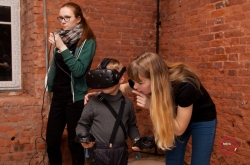The education process at the faculty is organized in such a way that students themselves decide in which field they need to develop. All knowledge they obtain has to be applied in practice already during their studies.
“Education of the future is akin to morphogenesis – the process of an organism’s development from a single cell or embryo to its final form. That said, this final form cannot be programmed beforehand,” says the faculty’s dean Anton Gopka. “We aim to ensure a personalized trajectory of professional and personal growth for each and every one of our students. It’s very important for us that our students have the opportunity to discover firsthand the applicability of the skills they are taught and to feel part of the effort to solve global problems humanity faces in the form of research work or the creation of their own startups.”
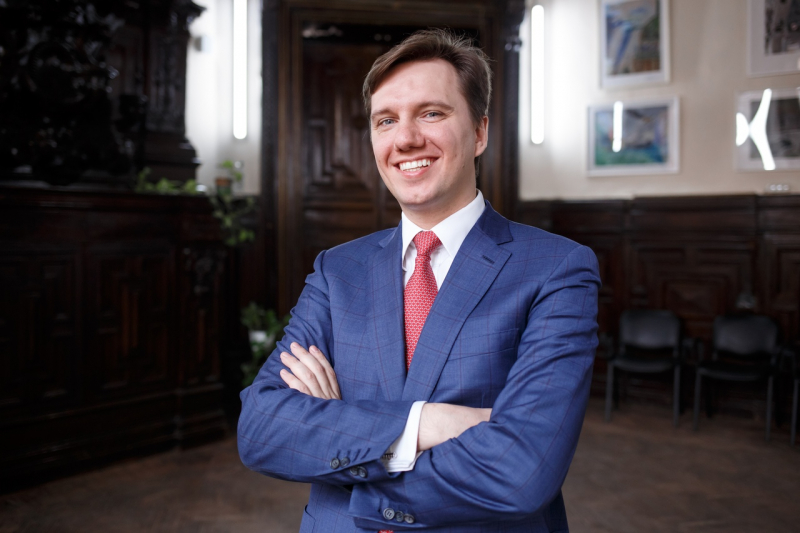
Innovative entrepreneurship is needed in many fields: information and communication technologies, life sciences, foodtech, cleantech, creative industries, and printed electronics. Each of these is a highly promising breakthrough field of the innovative economy in which students can develop.
“On April 21, a roundtable was held on the topic “Foodtech Under Crisis: How to Proceed?” Among the participants were owners and business managers in the field of foodtech: CEO of EFKO Innovations Andrey Zyuzin, co-owner of the Teremok fast-food chain Vitaliy Svidlovskiy, owner of the Norilsky meat processing plant Viktor Konovalov, owner of the It Runs in the Family food shop chain Leonid Tsoy, director for development at the Galaktika group of companies Oleg Dyu and others,” comments Olga Orlova, an associate professor at the Faculty of Technological Management and Innovations. “We discussed how much companies in the sector were affected by the current crisis, what are the prospects for recovery, and what foodtech can look forward today. The companies noted that they see great value in our graduates and they are ready to hire them. In the course of the meeting, we also agreed on launching the joint platform Foodtech SPb, which will allow us to bolster our cooperation.”
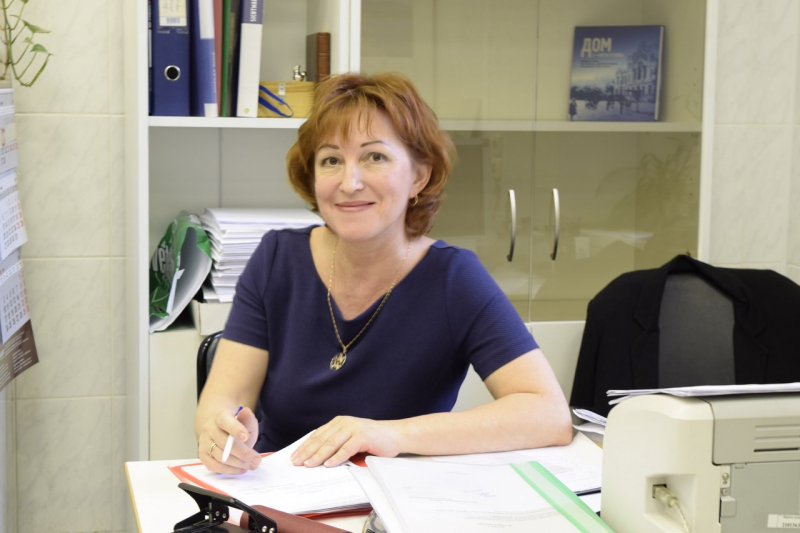
Last year, the university became the federal operator of the project Human Resources for the Digital Economy, implemented under the aegis of the national Digital Economy of the Russian Federation program. Master’s students can implement their own business ideas within the framework of the Startup as a Thesis program. An initiative by the Faculty of Technological Management and Innovations, it was launched in 2019 university-wide, meaning that the students can now present their business plan as their graduation thesis. From the formation of the idea to its launch, they are mentored by representatives of partner companies, and students can approach lecturers with any questions regarding their business case. The first defenses in the new format will take place this year.
“This allows ITMO University students to come into contact with the world of technological entrepreneurship, form an idea, assemble a team and venture into real-world development already during their studies,” says Anton Titov, the program’s coordinator. “When developing this thesis defense format, we worked on incorporating a flexible approach to the entire process. For example, teams can include members from different universities and external specialists. The main twist here is that both the interim check – presenting your project to the Expert Council – and the business thesis defense mimic the investment presentation of a project as closely as possible. Such format is inter alia justified by the fact that the committee includes eminent and well-respected representatives of the industry and the venture market.”
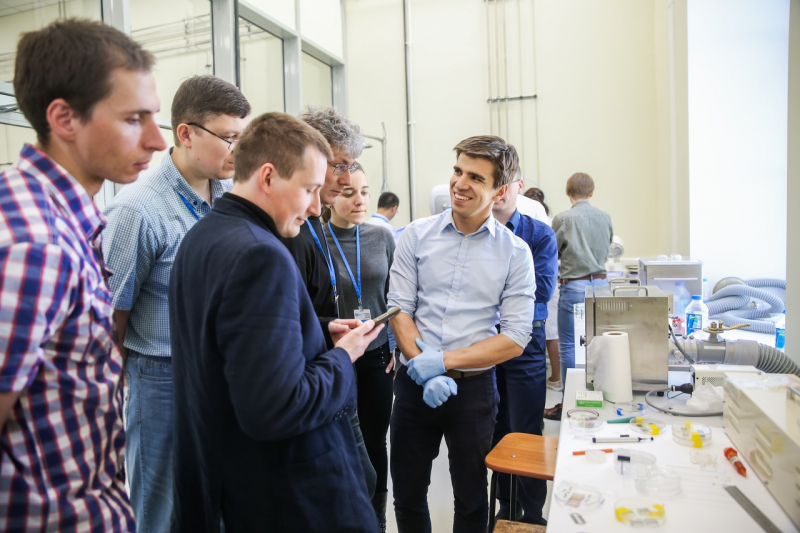
The Faculty’s structure includes ITMO University’s Engineering Center. This is a joint project by the university and the North-West Technology Transfer Center. Apart from performing commissioned research and development, the Center conducts the launching of businesses in the entire technological spectrum.
“The main specialization of the center is flexible electronics and photovoltaics. This is one of the most dynamically developing technological sectors in the world,” explains Viktoria Zheltova, the Center’s director. “This sector includes a wide spectrum of breakthrough technologies on different stages of commercialization – from thin-film photovoltaic technologies and energy storage systems to flexible screens. More than 10 tech startups are now actively developing on the basis of the Engineering Center. The Innovative Entrepreneurship Master’s program’s specialization in flexible electronics is the only one in Russia.”
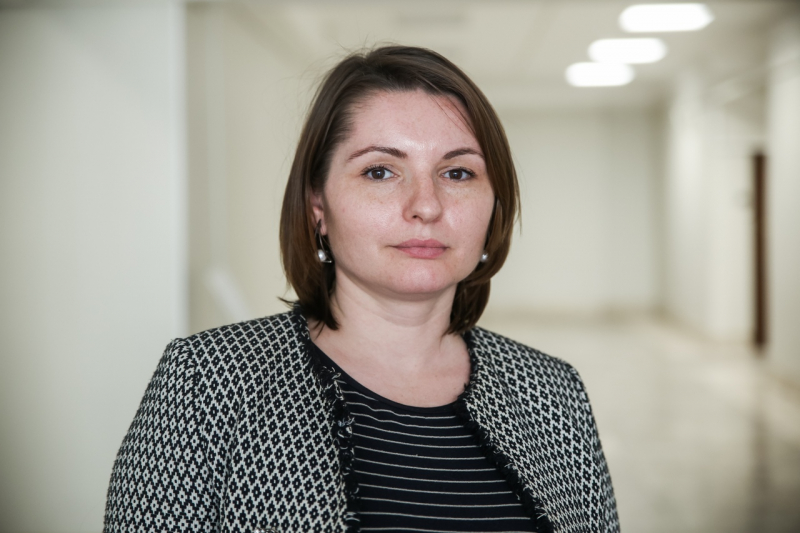
The faculty also implements the university-wide Entrepreneurial Culture module. Its aim is to help students develop essential skills needed for the creation of their own projects.
“Building on real-life cases and practical examples, we explain how to come up with an idea for your own business, scale it up and launch it on the market,” says Natalia Aniskevich, the module’s coordinator. “As part of the Entrepreneurial Culture courses, students have the opportunity to develop their own startup, which they can defend as their graduation thesis and develop with the university’s support after their graduation. Among our most famous speakers are blogger Alexander Gorniy, Semantic Hub founder Vitaly Nedelskiy, business coach and CEO of Macroscope Consulting Garrett Johnston. The key feature of the courses is that we go beyond the traditional study model. Students work in groups, and at the end of the course they don’t take any standard exams but present their projects before experts in a public defense.”
The Faculty collaborates with Gazprom Neft, Yandex, IBM, EFKO Innovations, 1C, and Pulkovo Airport. Students can do their practical training at innovative units and get feedback on their business projects.
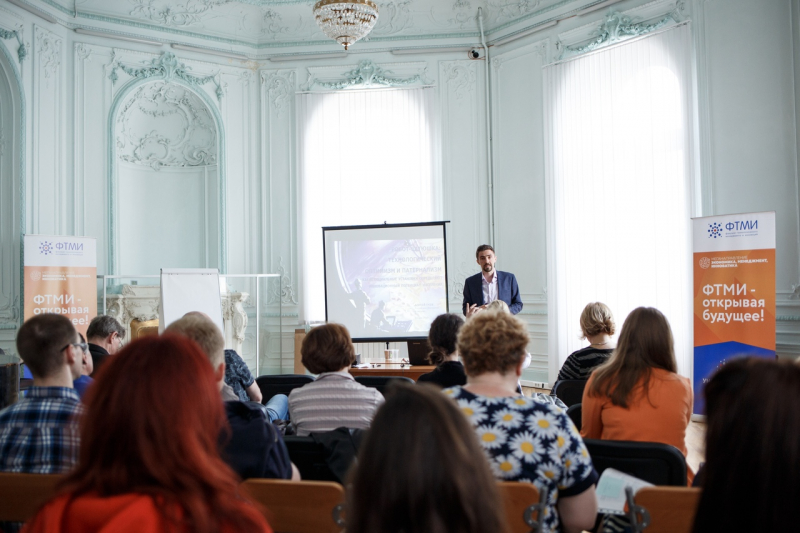
Launching their own business isn’t the only career path for a Faculty of Technological Management and Innovations Master’s student. Major Russian and international companies are willing to hire the Faculty’s students right after their graduation.
“I chose to do my Master’s at ITMO University because of the marketing competition Marketorium, which was and is held on the basis of the Marketing and Communications Department,” shares Maria Balykina, a participant of the Mars Leadership Experience Program. “Each semester, we solved real-life business tasks: communicated with customers, wrote briefs, carried out discussions, proposed solutions, received feedback, reworked these solutions, and then it all would start anew. These projects provided me with the most valuable knowledge. Right now I’m participating in the Mars Leadership Experience Program. The program gives you the opportunity to work in three different positions at the company’s different units. Its participants conduct large-scale projects and communicate with top managers. The graduates work in managerial positions.”
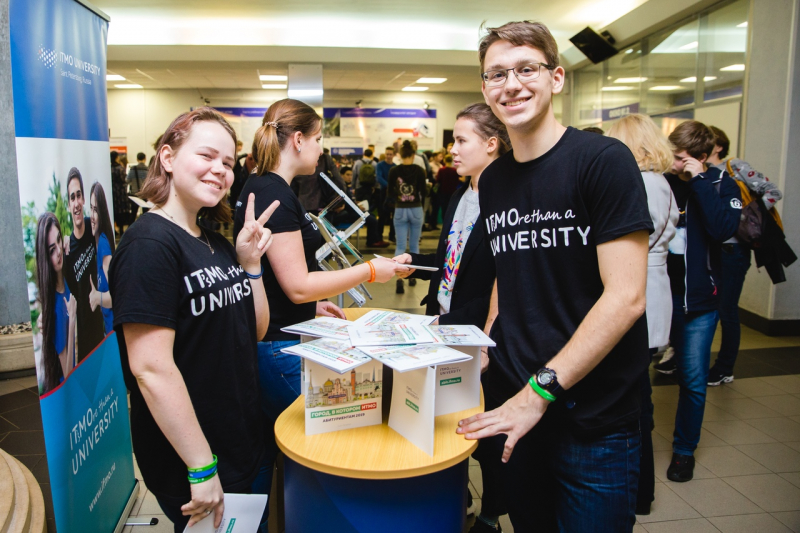
As part of their Master’s, students can change their Bachelor’s specialization and acquire knowledge in a new field.
“I knew that I specifically wanted to enroll at this faculty and be taught by these lecturers,” says Ekaterina Solovyeva, a manager at MegaFon. “I heard a lot about this field and followed its developments for a long time. Sometimes I even regretted the fact that I didn’t do my Bachelor’s studies there, but in the end it all panned out well with my Master’s. Now I work at MegaFon – I’m responsible for products for roaming. I’ve been working in marketing from the start of my Master’s studies. A targeted Bachelor’s program wouldn’t have been enough, it would’ve taken me many years to develop the necessary knowledge and skills if I had just worked all by myself in the office.”
For many, Master’s studies at the Faculty of Technological Management and Innovations is an opportunity to broaden their knowledge and develop in their professional area.
“I completed my higher education and obtained an engineering qualification with the specialization “Standardization and Certification” in 2014, after which I started working at the Russian Register Certification Association,” shares Sergey Avtoneev, a department head at Russian Register. “In a couple of years of work, I realized that the field of certification requires more in-depth and niche knowledge, which prompted me to consider applying for either Master’s or PhD studies. I advise all students to pay attention to the fact that thesis defense unlocks lots of opportunities for employment and further development as a specialist! As of today, I’ve gone a long way from a regular engineer to a department head, and participate in thesis defenses in search of talented graduates.”
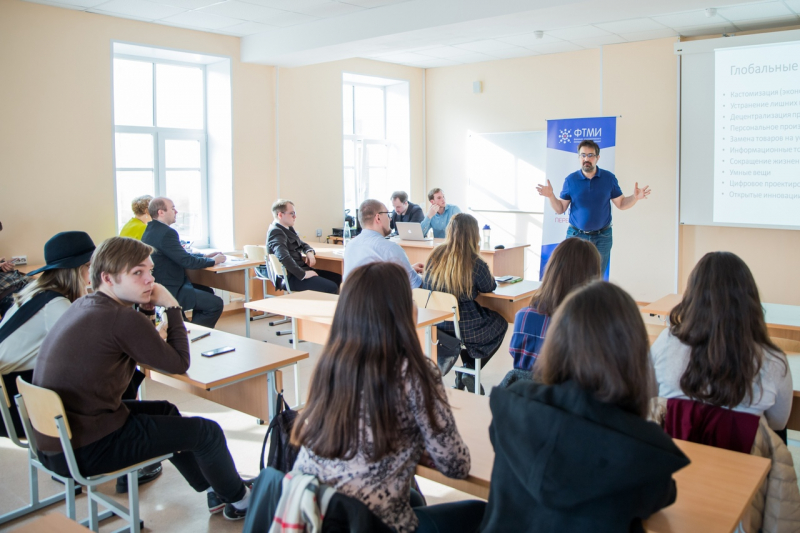
There are different ways of applying for Master’s studies at the Faculty of Technological Management and Innovations – depending on whether you have a portfolio or participate in academic competitions and conferences.
“This year, the Faculty of Technological Management and Innovations offers seven Master’s programs with a total of 21 specializations,” explains Gennadiy Molchanov, the Faculty’s deputy dean. “You can enroll in different ways: by passing the entrance examinations, becoming a winner or prize winner at the I Am a Professional student competition or the NTI Olympiad, or presenting a portfolio with an impressive professional record and research results at ITMO University’s Portfolio Contest. But first and foremost, all prospective Master’s students need to create their own account on ITMO Admissions. This year, the entire admission process will take place online. I’m sure that everyone who enrolls in our programs will find their own niche and become a true professional in their field.”
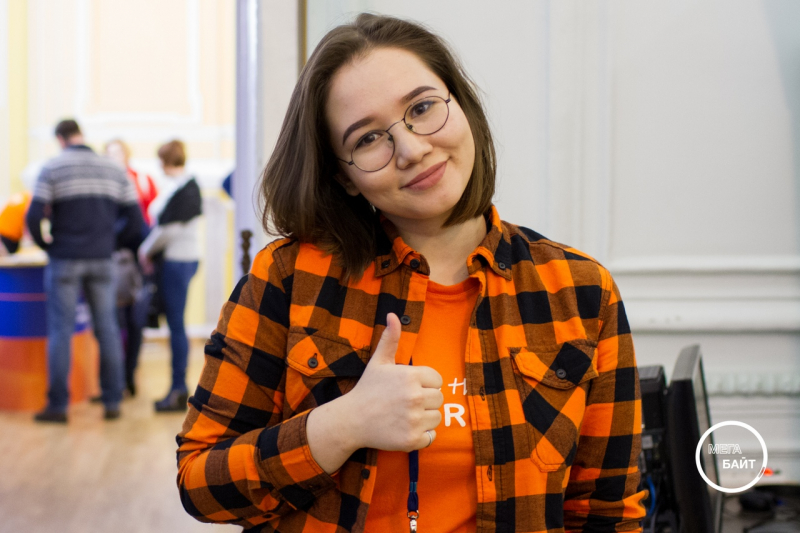
A graduate’s career path can be built according to one of seven key digital economy skills:
-
Technological entrepreneurship (CEO)
-
Digital transformation (CDTO)
-
Quality management in material-based projects (CTO)
-
State regulation of high-priority fields (GR)
-
LegalTech and intellectual property management (General Counsel/IP Attorney)
-
Innovative marketing (CMO)
-
Corporate finance and venture investments (CFO/VC investors)
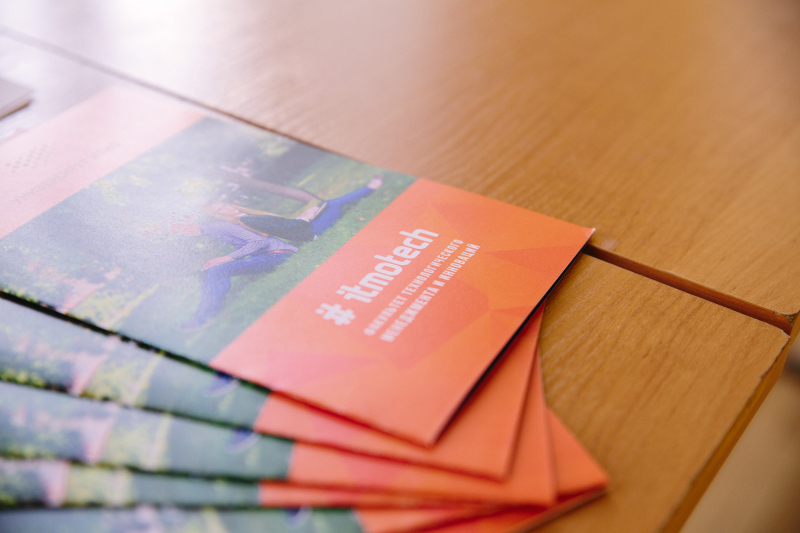
Consequently, the faculty offers seven Master’s programs that correspond to these skills:
Digital Transformation of Organizations
Innovative Economics and Industry Regulation
Intellectual Property Management
Investments in the Technology Sector
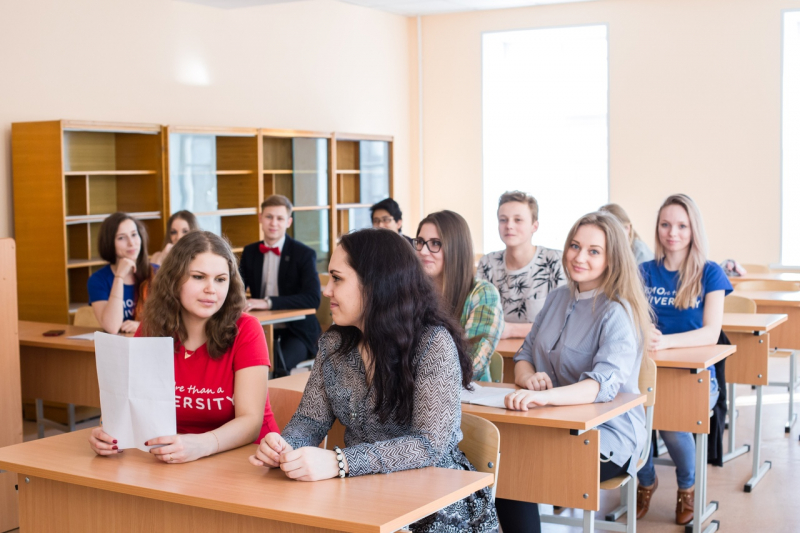
Admissions to ITMO University’s Master’s programs are open online. If you have any questions about the admission process, you can address them to the chat of the VK community of ITMO Master’s studies or write to the International Students Learning and Support Center at int.students@itmo.ru. A detailed application guide for prospective Master’s students is available here.
More on the faculty’s events:
Competition of projects in collaboration with Gazprom Neft (in Russian)
Oil & Gas seminar with Gazprom Neft (in Russian)
Workshop on education and consulting for startups (in English)
Techstars Startup Weekend (in Russian and English)
You can also read the Faculty of Technological Management and Innovations dean Anton Gopka’s article in Forbes (in Russian).




